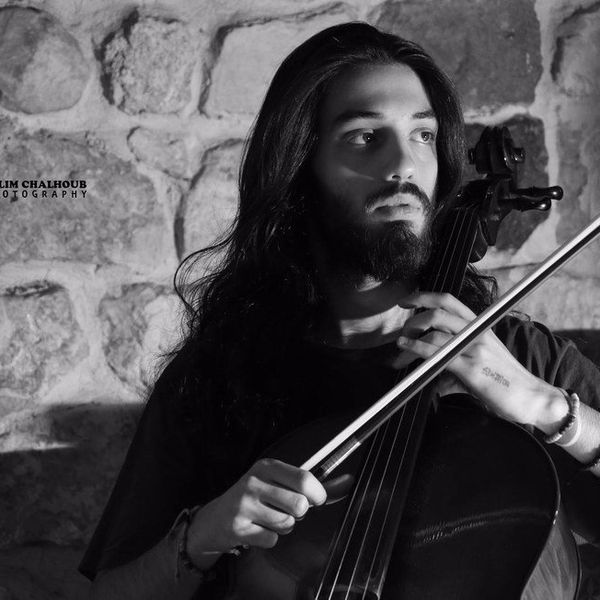When the refugee crisis in relation to the U.S. first began to stir up in the news, I was approached by a friend who asked for my opinion. The whole concept of refugees, and a nation's responsibility of accepting them, was very vague to me at this point.
His explanation of the problem was that people were advocating to allow the unmonitored flow of unemployed immigrants from politically turbulent nations (such as Syria) into our own. I quickly agreed with him that this was a huge potential homeland security issue, and that it was illogical to stand behind such an intimate commitment to another nation's citizens at the risk of our own.
The problem with my initial thinking has many layers.
Firstly: I did not understand, on any level, the civil unrest in Syria. I still do not completely, but I have tried my best to read up on it as much as I can.
Furthermore, the person who explained the problem to me did not understand it either.
The only fact that I and this person could spew about Syria is that it housed the terror group ISIS.
Like anything we learn from mainstream news: the situation is not so simple.
Syria has been engaged in a civil war since 2011. The difference between the American Civil War (which we are so familiar with), and that of Syria's is enormous. The amount of military force available to groups fighting in modern-day Syria, as well as their tactics, make a turbulent environment in which to live. Battles are not contained like in our civil war, and weapons are exponentially more dangerous.
Also, instead of a one-vs-one war dynamic, the civil war in Syria is essentially a world war contained inside one country. In other words: there are countless different militant groups fighting one another, rather than a relatively linear North vs South, or Rebels vs Established Government situation.
The war can be traced to the fact that when Syria was formed as a nation, it contained many significant populations of different social groups (including varying worldviews of Islamic belief, Jews, and Christians). The current societal unrest is due to the oppression of these groups and the exaltation of Alawi Muslims by systematic discrimination.
Alawi Islam was the pinnacle of power in Syria starting in 1970, and was ruled by the Ba'ath party leader Assad (the father of the current Assad ruling Syrian government today).
The success of the Ba'ath socialist party was ultimately accomplished by Russia acting as a weapon and diplomacy benefactor during The Cold War. At the time, developed nations (including the U.S.) were essentially funding political groups in unstable third-world countries in order to support the governments that most resembled theirs.
However, this allied relationship is unique because it continues to exist strongly today. This is due to Russian use of Syrian warm water ports.
Therefore, the Ba'ath party has been able to keep enough power to stand against the rebel groups (and will likely have enough to do so until Russia discontinues their support).
Due to the power gained by the Ba'ath party, the Alawi Muslims had an unhidden advantage in Syrian society for 40+ years. Most businesses only hired Alawites, and they had traffic lanes separated for themselves.
Additionally, college scholarships were only awarded to Alawite children and business contracts were exclusively granted to them. The country was segregated completely for over four decades, with Alawites at the top of the social order.
Despite Alawite power, the majority of the Syrian population is Sunni Muslim.
Sunnis believe full heartedly that the practices of the Alawites are entirely against the teachings of Islam. That, in combination with the oppression of nearly half a century, caused Sunnis to begin to protest the existing Ba'ath party.
It began with peaceful pro-Democracy protests by Sunnis. However, due to the horrifically violent reaction of Assad's regime, the conflict eventually became a full out civil war: powerful minority vs oppressed majority.
From there, the push and pull between the Alawite Syrian government and Sunnis began to further splinter off into separate rebel groups, who all individually wanted different things from their government.
Amongst the rubble of Syrian Ba'ath establishment, countless rouge terror groups were able to fight to push their own agendas. ISIS is one of these groups which was able to gain power by moving into Syria from Iraq.
The opposition of the groups further differ from those in our American Civil War because of the way they view one another's humanity. The worldview of these rebels contains no benefit ,or possibility, of compromise in ideology.
They blanket cities and families as unlike them, and therefore evil. Furthermore they consider those not aligned with their cause undeserving of life.
Thousands of Syrian civilians are uninvolved in the conflict and have been killed or displaced because their lives are endangered. Furthermore, there are U.N. refugee laws that are meant to keep this from happening (which were created in 1951 after World War II when countless European Jews fled from Nazi Germany as refugees).
 So, if we accepted European Jews, what's the problem?
So, if we accepted European Jews, what's the problem?The resolution set in place in 1951 to protect refugees left grey area for the country to consider who, and who does not, qualify as a refugee.
Under the current U.N. law, countries where Islam may not be the majority are enabled to label middle eastern refugees as "migrants" rather than peoples endangered by their own state.
Therefore, the acceptance of endangered Syrians is unwelcome in most European countries, as well as the U.S., because it is politically unpopular to support it. This is much due to the West's unfamiliarity with Islam, as well as our reliance on feelings of fear associated with certain groups we do not fully understand.
We selfishly give clout to our own worries, rather than heeding statistics that first generation immigrants, as well as refugees, generally have low crime rates (especially if given careers in their harbor country).
Another statistic so often ignored is that Syrian and Iraqi Muslims are the groups most commonly being killed and targeted by movements like ISIS. Not Westerners.
Meanwhile, outstandingly underfunded countries disproportionately bear the weight of refugee acceptance. This is due to their lack of Xenophobia and Islamophobia, and furthermore: a familiarity with people of middle eastern race.
For example, one third of the population of Jordan is exclusively refugees.
Bottom line that we cannot forget:
These Syrian refugees are not simply their label of "refugee," "Muslim" or "Middle Eastern." The people affected by this violence are human.
These people have families. These people had careers and complex lives in their original homes. Furthermore, they have protection under international law.
As human beings, it's time we allow the empathy we commonly extend towards those marginalized in recent history (such as those affected by the Holocaust) to also include those in modern societies who are ostracized and endangered by their own nations because of their beliefs (regardless of our lack of societal similarities to them).
We must look past the lenses of fear and bias that drive us to ignore the humanity of the people being affected by the Syrian Civil War (and conflicts like it).
The U.N. law itself states that refugees must not be denied acceptance into countries on account of their religion. However, when it gets down to it: that is what many politicians are pushing to happen.
To deny the complexity of Syria, and other nations that are not our own, is to deny groups of people of their humanity. To blanket these horrified families and individuals as potentially dangerous, and associate them with those we fear, ignores the multi-layered intricacy of the problem of the nation at hand.
When asked about our opinion on the refugee crisis, we must remember the many layers of the society we are speaking of. Most importantly, we must always remember the personhood of the lives we are considering.
Here's how we can help:





















